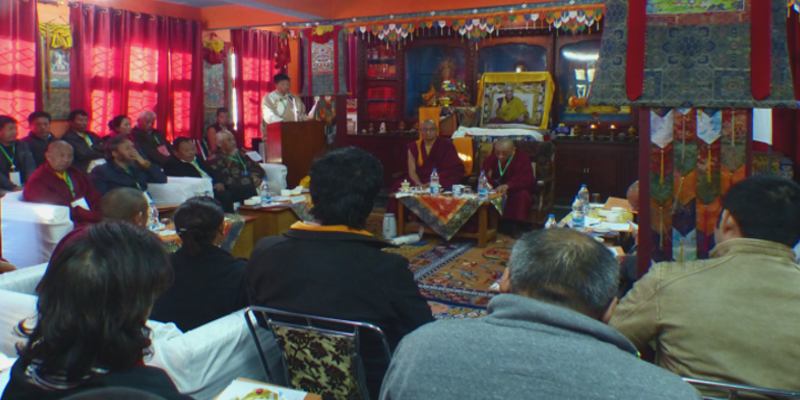Jonang Association will continue to strive for their representation in the Tibetan Parliament in Exile as per the reservation provisions granted to the four sects of the Tibetan Buddhism and the Bon sect. The representatives of the Jonang followers of Tibetan Buddhism pledged to continue their fight during their 9th special conference held in Dharamshala recently.
“Tsangyang Gyatso, President of Jonang wellbeing Association, explained that the objective of the Special conference was to revive and spread awareness about the Jonang school of Tibetan Buddhism, and to acquire equal religious status as other schools of Tibetan Buddhism” said the report in the official website of the Central Tibetan Administration on November 25.
Ven. Yuthok Karma Gelek, the Minister of Department of Religion and Culture, Central Tibetan Administration attended the opening ceremony of the special conference which was to discuss the the evolution of Jonang Tradition and its present status held at Duekhor Monastery in Dharamshala on between November 25 and 27 this year.
With over 50 delegates from around 19 different locations from seven different countries, the participants resolved on five different points of discussion on the last day of the conference. In addition to pledging to promote inter religious respect by participating and organizing inter religious debates in the future, they also pledged to continue their demand for their representation in the Tibetan Parliament in Exile as other Tibetan religious sects.
Since they have already submitted their memorandum to the Tibetan parliament years before and awaiting a result in their favour, they told that they will approach the Tibetan Supreme Justice Commission in case of dissatisfaction. Khenpo Kunga Tsamchung, a senior has earlier also said that the Dalai Lama has given his approval to recognise Jonang as a separate sect since 2011 during a Buddhist conference and other religious leaders also seconded the approval.
The four sects and the Bon religion are represented in the exile Parliament with two representatives each, elected by the monks and nuns from their respective sects in the exile Tibetan parliament, which has 45 representatives in total. The Tibetan Charter has to be changed by the members of the Parliament in order to meet this demand and it can only be amended by two thirds of the members present in a session.

